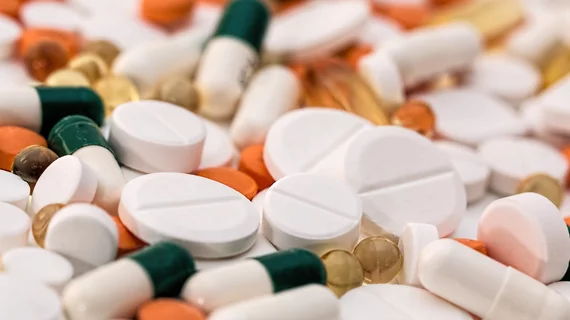95% of doctors believe COVID-19 has exposed cracks in the medicine supply chain
Most U.S. doctors (95%) believe that the COVID-19 pandemic has exposed cracks in the medicine supply chain and 7 out of 10 believe that their trust in the ability of the supply chain to deliver safe medications has eroded, according to a survey from U.S. Pharmacopeia (USP).
USP is an independent scientific organization that collaborates with the world's top experts in health and science to develop quality resources and standards for medicines, dietary supplements, and food ingredients.
Data from the survey revealed that 9 out of 10 doctors surveyed (90%) said they are worried that the global medicine supply chain may not be reliable in a time of crisis.
“As Congress considers bipartisan legislation on pandemic preparedness, the survey results further strengthen the case to meaningfully address medicines supply chain vulnerabilities, including the potential for drug shortages, before the next public health crisis,” Ronald T. Piervincenzi, PhD, CEO of U.S. Pharmacopeia, said in a prepared statement.
Piervincenzi noted that even though the medicine supply chain is complex, it is not broken.
“Rather, the pandemic surfaced both longstanding vulnerabilities and acute, pandemic-driven resiliency gaps,” Piervincenzi added.
Piervincenzi suggested pursuing multi-pronged solutions to identify and mitigate supply chain vulnerabilities that adversely effects physicians’ ability to deliver quality care and erode trust in quality medicines.
Results from the survey showed that physicians believe there is more than one group responsible for maintaining a resilient supply chain, including the federal government, pharmaceutical companies, and pharmaceutical wholesalers and distributors.
Sixty-two percent of those surveyed believe significant reliance on other countries for medicines is among the biggest contributing factor to medicine shortages. Meanwhile, 4 out of 5 (83%) believe the U.S. is too dependent on medicines manufactured in other countries, while 90% said more medicines need to be produced in the U.S.
“The challenges today are bigger than any one group can solve, so it is important for us to work together,” Piervincenzi added “Together with stakeholders across the healthcare ecosystem, USP works to support supply chain resilience and trust in medicines through public quality standards, which are an essential part of the solution.”
Read the entire survey here.
